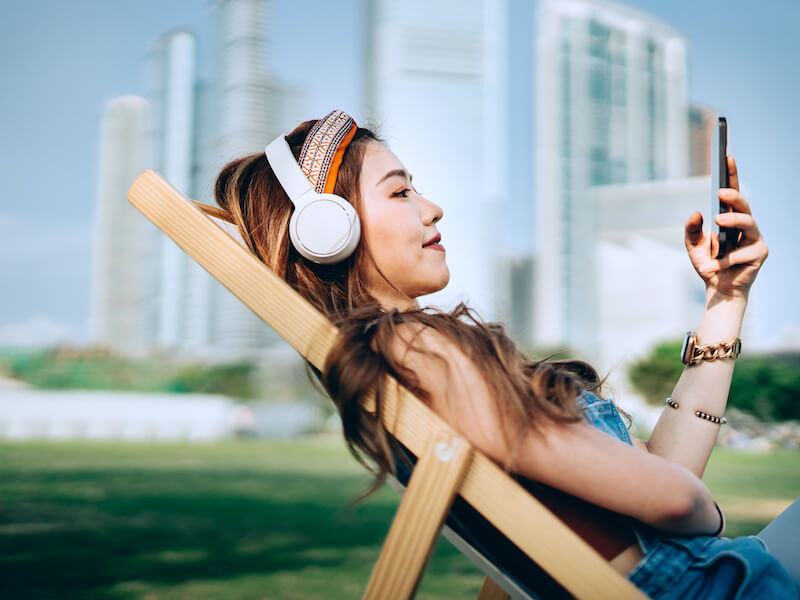
Music is an essential part of Aiden’s life. He listens to Spotify while at work, switches to Pandora while jogging, and he has a playlist for everything: cardio, cooking, gaming, you name it. His entire life has a soundtrack and it’s playing on his headphones. But the exact thing that Aiden enjoys, the loud, immersive music, could be causing permanent harm to his hearing.
There are ways to listen to music that are safe for your ears and ways that are not so safe. But the more hazardous listening choice is often the one most of us use.
How can hearing loss be caused by listening to music?
As time passes, loud noises can cause degeneration of your hearing abilities. Normally, we think of aging as the principal cause of hearing loss, but more and more research reveals that it’s really the accumulation of noise-related damage that is the issue here and not anything intrinsic to the aging process.
Younger ears which are still growing are, as it turns out, more susceptible to noise-induced damage. And yet, the long-term damage from high volume is more likely to be dismissed by younger adults. So because of widespread high volume headphone usage, there has become an epidemic of hearing loss in young people.
Can you listen to music safely?
It’s obviously dangerous to enjoy music on max volume. But simply turning down the volume is a less dangerous way to listen. The general guidelines for safe volumes are:
- For adults: No more than 40 hours of weekly listening on a device and keep the volume below 80dB.
- For teens and young children: 40 hours is still fine but decrease the volume to 75dB.
Forty hours per week translates into roughly five hours and forty minutes per day. That seems like a lot, but it can go by rather quickly. Even still, most individuals have a pretty reliable concept of keeping track of time, it’s something we’re trained to do efficiently from a very young age.
Monitoring volume is a little less user-friendly. Volume isn’t gauged in decibels on most smart devices like TVs, computers, and smartphones. Each device has its own arbitrary scale. It might be 1-100. But perhaps it’s 1-16. You might not have any idea what the max volume is on your device, or how close to the max you are.
How can you listen to music while monitoring your volume?
There are a few non-intrusive, easy ways to figure out just how loud the volume on your music actually is, because it’s not all that easy for us to conceptualize what 80dB sounds like. It’s even harder to determine the difference between 80 and 75dB.
So using one of the numerous noise free monitoring apps is highly recommended. These apps, widely available for both iPhone and Android devices, will provide you with8 real-time readouts on the noises around you. In this way, you can make real-time alterations while monitoring your actual dB level. Your smartphone will, with the proper settings, let you know when the volume goes too high.
The volume of a garbage disposal
Your garbage disposal or dishwasher is generally around 80 decibels. So, it’s loud, but it’s not too loud. It’s a significant observation because 80dB is about as much noise as your ears can handle without damage.
So pay close attention and try to stay clear of noise above this volume. And limit your exposure if you do listen to music above 80dB. Perhaps listen to your favorite song at max volume instead of the whole album.
Over time, loud listening will cause hearing issues. Hearing loss and tinnitus can be the outcome. The more you can be aware of when your ears are entering the danger zone, the more informed your decision-making can be. And ideally, those decisions lean towards safer listening.
Still have questions about keeping your ears safe? Call us to go over more options.
